News
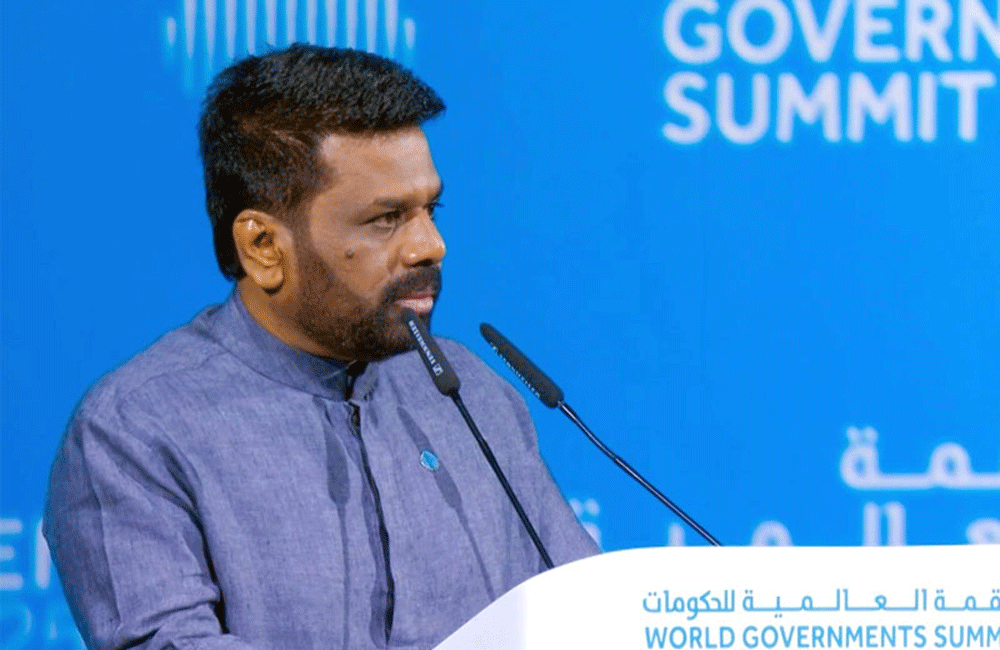
President Anura Dissanayake addresses World Governments Summit
President Anura Kumara Dissanayake has addressed the main session of the 2025 World Governments Summit in Dubai, where he outlined Sri Lanka’s vision on economic growth, innovation and governance reforms.
In his speech the Head of State also highlighted Sri Lanka’s commitment to sustainable development and international cooperation.
Today (12) marks the third day of the President’s official visit to the United Arab Emirates (UAE).
President Anura Kumara Dissanayake who is currently attending the World Governments Summit 2025 in Dubai held several high-level bilateral discussions with Heads of State, on Tuesday (11).
During the day, the President met with Pakistan’s Prime Minister Muhammad Shehbaz Sharif. Prime Minister Sharif extended his congratulations to President Dissanayake on his government’s significant electoral victory in Sri Lanka.
Meanwhile, President Dissanayake also met with former British Prime Minister Tony Blair. The discussions revolved around the potential for Sri Lanka to leverage the United Kingdom’s expertise and specialized knowledge in various sectors.
President Dissanayake also met with the Prime Minister of State of Kuwait His Highness Sheikh Ahmed Abdullah Al Ahmad Al Sabah on the sidelines of the summit.
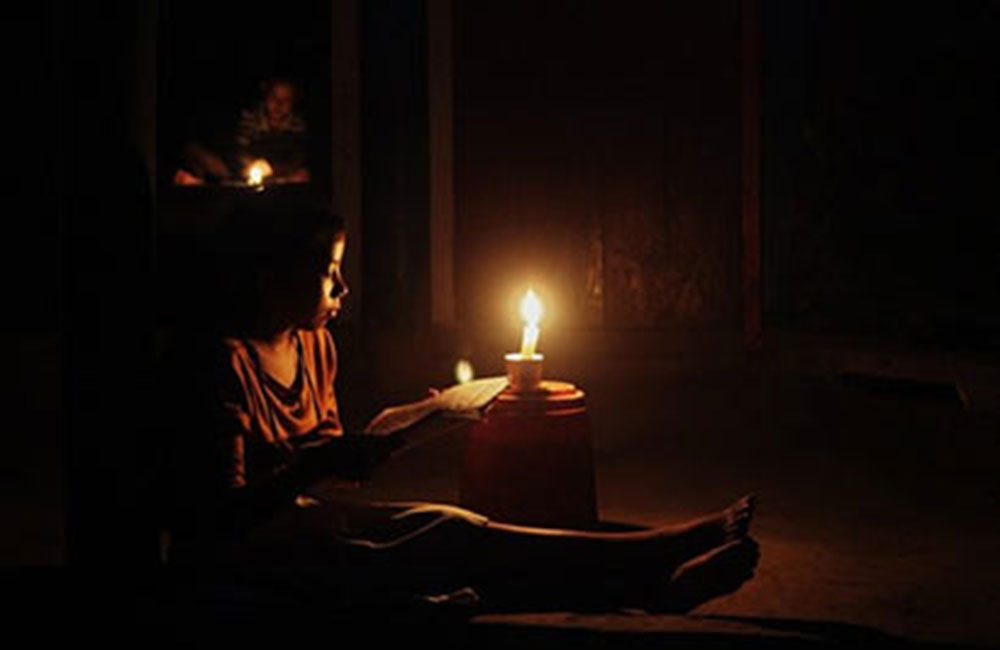
Power Cuts Scheduled For Today & Tomorrow
The Ceylon Electricity Board (CEB) has announced a plan to manage electricity demand across four zones in Sri Lanka today and tomorrow.
This decision follows a nationwide power outage yesterday that caused all three generators at the Lakvijaya Power Plant in Norochcholai to become inoperative.
As part of the power supply management, supply of electricity will be cut off for 1 hour and 30 minutes in each zone between 3:30 p.m. and 10:00 p.m.
The Public Utilities Commission has granted approval for the CEB’s request to implement these measures.
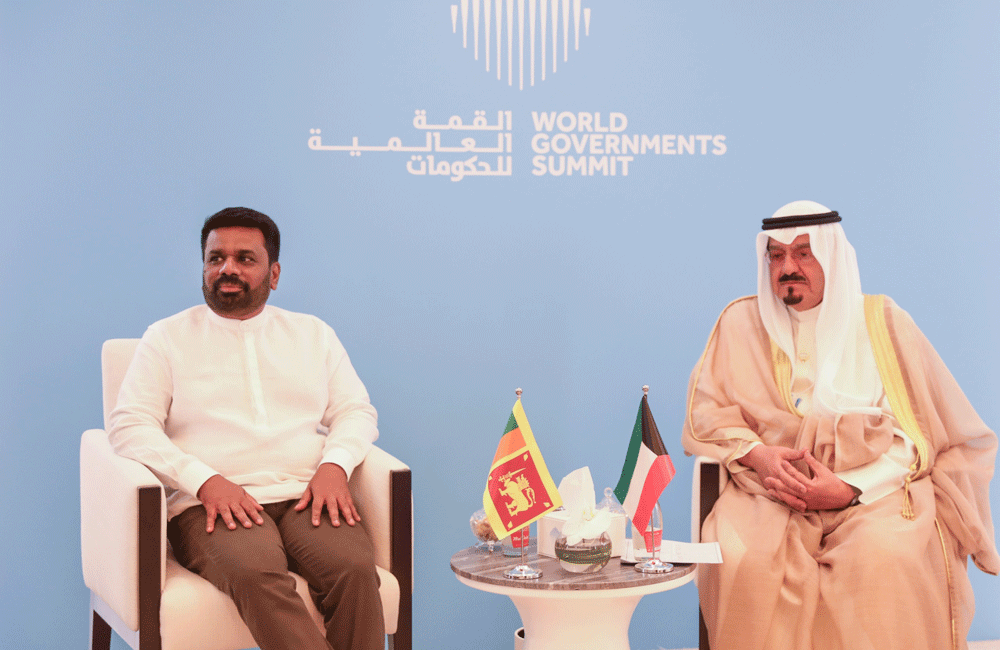
155,000 Sri Lankan workers in Kuwait: President meets Kuwait PM
President Anura Kumara Disanayake, who is currently in the United Arab Emirates to participate in the 2025 World Governments Summit, met with the Prime Minister of State of Kuwait His Highness Sheikh Ahmed Abdullah Al Ahmad Al Sabah yesterday afternoon (11).
During the discussion, President Disanayake highlighted Sri Lanka’s improved political and financial stability, emphasizing the expanded potentials in investment and tourism sectors.
Both leaders focused on strengthening trade relations and diversifying markets between the two countries. They also discussed the importance of exploring new strategic initiatives to enhance economic cooperation.
President Disanayake expressed his gratitude to Prime Minister His Highness Sheikh Ahmed Abdullah Al Ahmad Al Sabah and the State of Kuwait for its support in securing the International Monetary Fund (IMF) loan facility, acknowledging its contribution to Sri Lanka’s economic recovery.
Additionally, the President noted that approximately 155,000 Sri Lankan workers are employed in Kuwait, contributing USD 700 million in annual remittances, which serves as a significant boost to Sri Lanka’s economy.
Minister of Foreign Affairs, Foreign Employment and Tourism, Vijitha Herath, accompanied the President on this visit. (PMD)
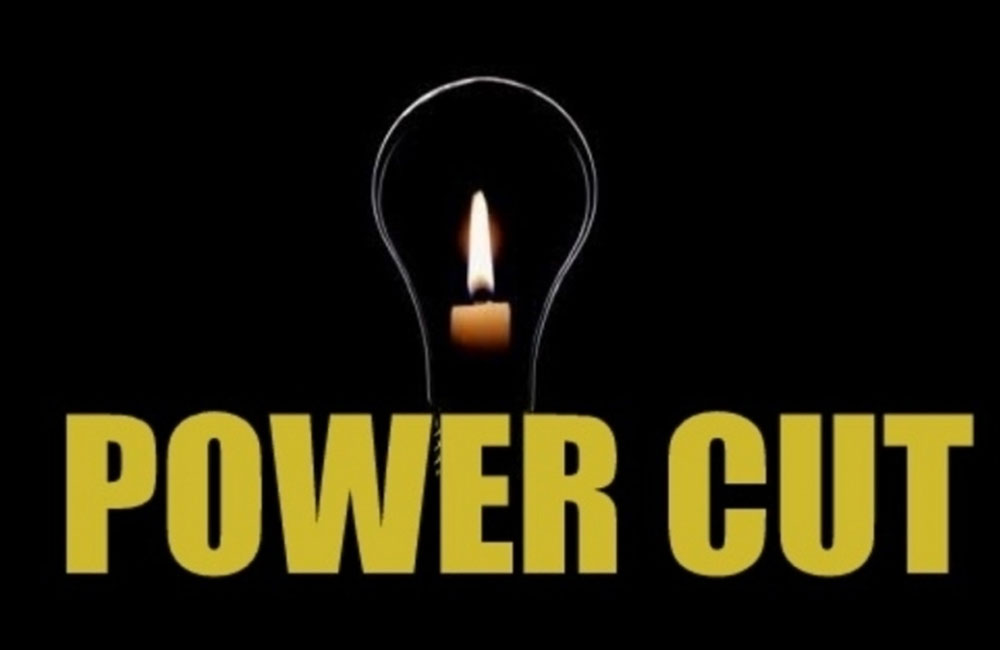
Island-Wide Power Outage: CEB To Take Prompt Action
The Ceylon Electricity Board said there has been a sudden power outage across the island.
Chairman Dr. Tilak Siyambalapitiya stated that prompt action is being taken to restore power supply.
When inquired on the situation, Secretary to the Ministry of Energy, Professor Udayanga Hemapala, said that the power disruption was caused by an imbalance in the national grid.
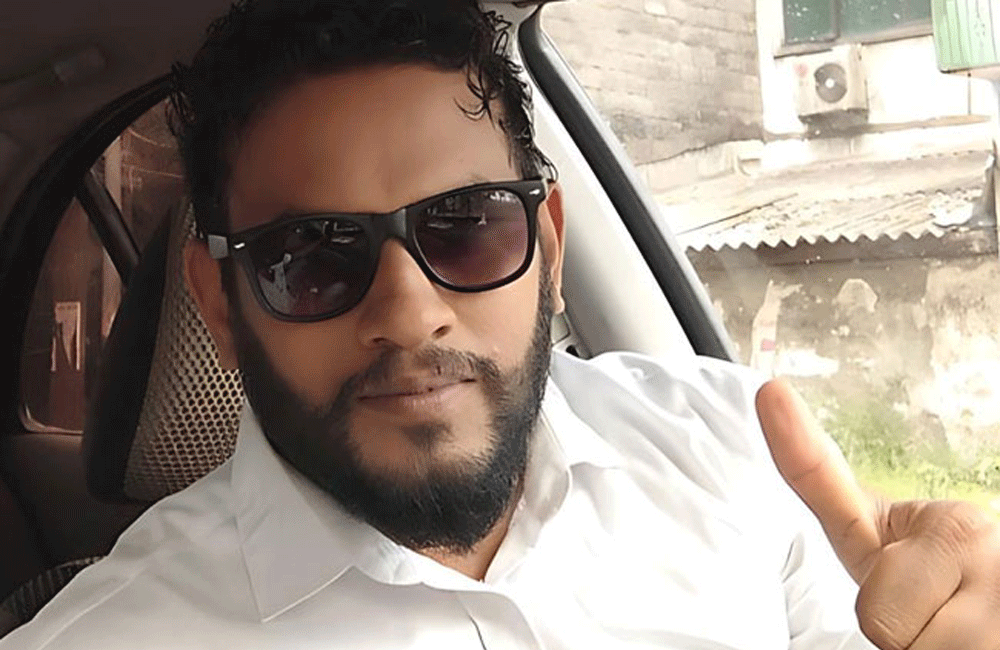
Dan Priyasad arrested at BIA
The convenor of the Nawa Sinhale National Movement, Dan Priyasad, has been arrested by Sri Lanka Police this morning (11).
He was arrested upon arrival in Sri Lanka from Dubai at the Bandaranaike International Airport (BIA), Ada Derana reporter said.
He will be produced before the Galgamuwa Magistrate’s Court, according to police.
Police Media Spokesperson SSP Buddhika Manatunga stated that the Nikaweratiya Divisional Crimes Unit had initiated an investigation against Dan Priyasad over an alleged incident of forcing the Nan Eriya Police OIC not to arrest a drug trafficker in 2024.
In this regard, the Galgamuwa Magistrate’s Court had issued a foreign travel ban against Dan Priyasad and also a warrant to arrest Priyasad and produce him before the court.
(Ada Derana)
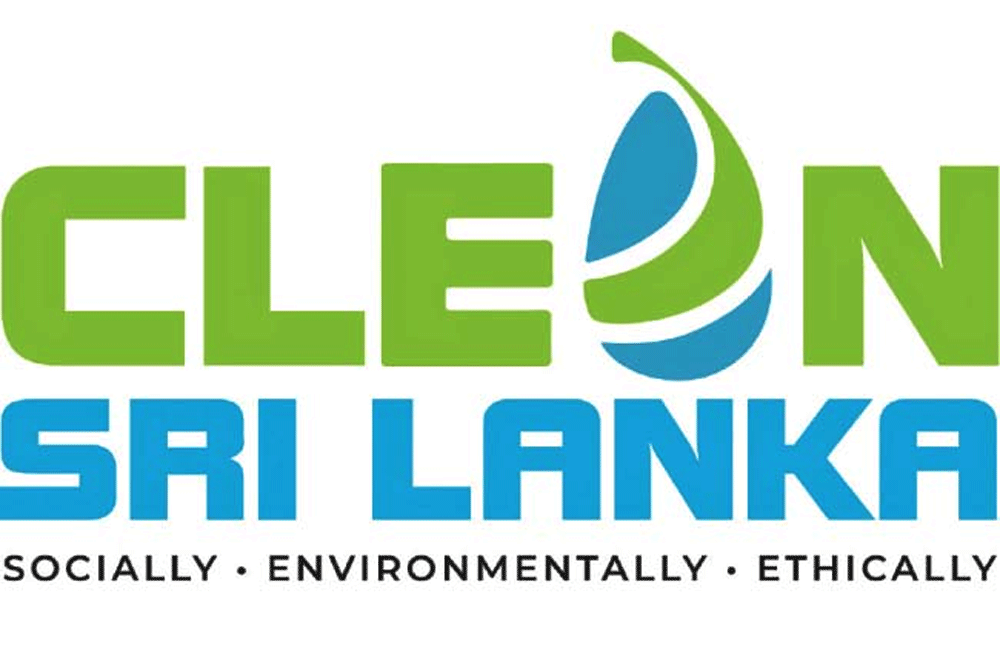
Japan Grants 300 Mn Yen for Sri Lanka's Waste Management
Japan has awarded a grant of 300 million yen for the Clean Sri Lanka project.
According to the Ministry of Finance, Planning & Economic Development, 28 new compactor trucks for waste transportation have been delivered to Sri Lanka as part of this initiative.
These trucks will enhance the waste management capacity of local government institutions in the Western, Northern, and Eastern provinces.
The official exchange of letters confirming the grant was signed recently at the Ministry of Finance.
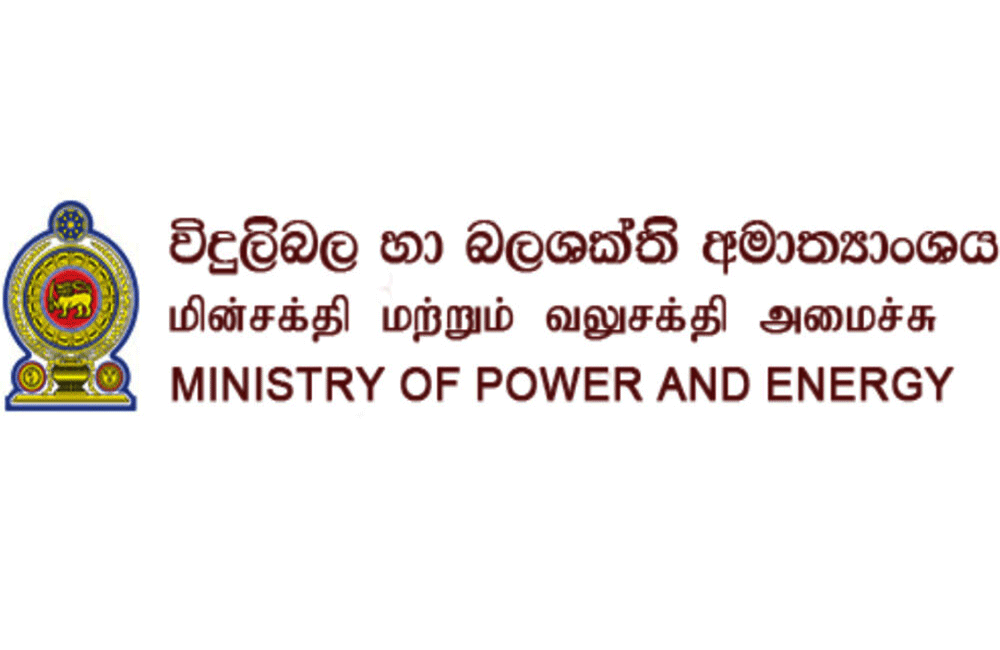
New Committee to Boost National Grid Stability
The Ministry of Energy has announced the appointment of a five-member committee to provide recommendations for enhancing the stability of the national electricity grid.
This decision was made under the directives of the Minister of Energy, Engineer Kumara Jayakody.
According to Ministry Secretary Udayanga Hemapala, the committee was established in response to a recent unexpected power outage.
The committee is chaired by Professor Lilantha Samaranayake from the University of Peradeniya.
The committee's mandate includes providing both short-term and long-term recommendations to prevent future power outages. They have been instructed to submit their recommendations within a week.
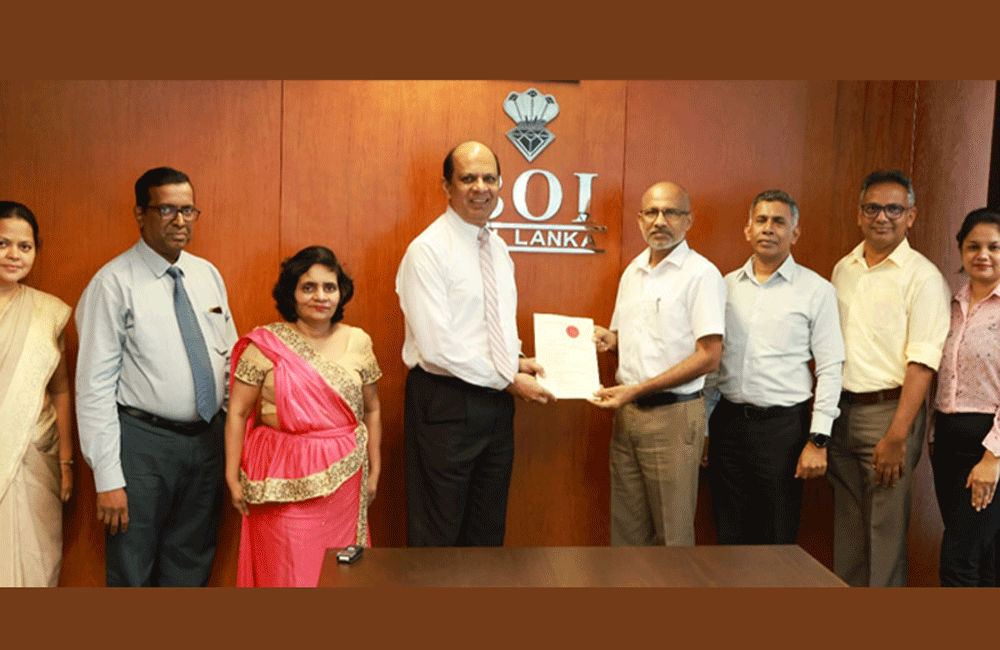
BOI invests Rs. 763 M for sustainable best practices in Horana Export Processing Zone
The newfound government is accelerating its efforts to attract Foreign Direct Investment (FDI) to the country by providing much-needed infrastructure to existing and new investors.
The Horana Economic Processing Zone (HEPZ) is a center of attraction due to its location.
One key feature of the BOI zones is the provision of services that enable investors to operate their businesses smoothly, and investors always prefer the “turn-key nature” of these facilities.
Electricity, water, and drainage systems; inbound illumination systems; and internal roads are the key attractions to the investors.
These essential facilities enable investors to conduct commercial operations or constructions immediately after signing of agreement with the BOI.
The constituency of the Horana EPZ consists of more manufacturing-led investors, and the wastewater treatment plant (CWWTP) is an integral part of the operation.
Most importantly, the Horona EPZ’s long-term viability and compliance with the ESG framework of the organization make it even better at meeting the UN’s Sustainable Development Goals (Goal 15).
Hence, it was identified by the BOI that the capacity of the existing Common Wastewater Treatment Plant (CWWTP) needs to increase its capacity, which is used for the treatment of wastewater discharges from industries at HEPZ, and therefore, augmentation of CWWTP up to a capacity of 3000 m³ per day is essential to cater to the present influent volume of 1750 m³/day and forecasted additional volume of wastewater generated from the expansion of the existing projects and new projects to be established in vacant lands while uplifting the environmental sustainability of the zone and mitigating the health issues.
The BOI Capital Budget lists this project as a priority activity to reduce any possible environmental impacts and meet the CEA’s requirements for getting an Environmental Protection License (EPL) for the Horana Export Processing Zone.
The bids were invited through the National Competitive Bidding process, which had eleven (11) bidders that submitted the bids, and only four (04) applicants were eligible for the detailed evaluation.
Bids were evaluated; at the evaluation stage, the Technical Evaluation Committee (TEC) determined the least substantially responsive bidder that had fulfilled the relevant qualifications and experience required for awarding the contract.
Hence, the Cabinet of Ministers, by decision dated 05/06/2023, has granted approval for the proposed enhancement of the common wastewater treatment plant (CWWTP) at Horana Export Processing Zone, utilizing BOI funds, after the competitive bidding process and technical evaluation are completed.
On 9th December 2024, the Cabinet took the final decision and approved the contract award to Luminex PLC, located at No. 24, New Galle Road, Moratuwa.
The BOI always works with the Central Environmental Authority, takes necessary action to mitigate imminent adverse environmental and health issues, and follows instructions to maintain the treatment efficiency of the existing wastewater treatment plant at HEPZ.
Because of this, the proposed addition should make the treatment system efficient and effective, Further, it will strengthen the existing Common Wastewater Treatment Plant (CWWTP) and fully meet the discharge effluent standards and CEA requirements.
(boi.lk)
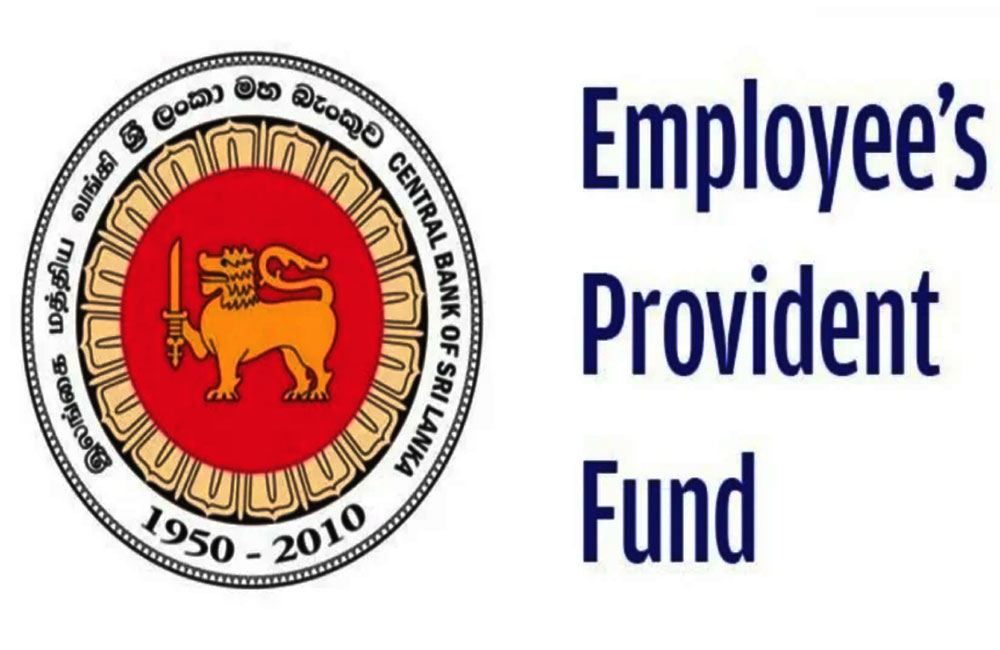
Cabinet approves new EPF management system
The Cabinet of Ministers has approved the implementation of a new Employee Provident Fund (EPF) Management System to improve efficiency in handling Sri Lanka’s largest pension fund.
With 21.5 million member accounts and 77,000 active employers, the EPF has assets totaling Rs. 4.2 trillion as of October 2024, maintaining an annual growth rate of over 9% in recent years.
Given the increasing volume of transactions, the need for a modern IT system capable of managing large-scale data efficiently was identified, the government said.
In 2021, a project was launched under the World Bank’s Financial Sector Modernization Project to develop the new system. The planning and specifications were completed with the consultancy of PricewaterhouseCoopers India.
Subsequently, the Cabinet has now approved a proposal by the President, in his capacity as the Minister of Finance, Planning, and Economic Development, to select an integrator for the system’s implementation.
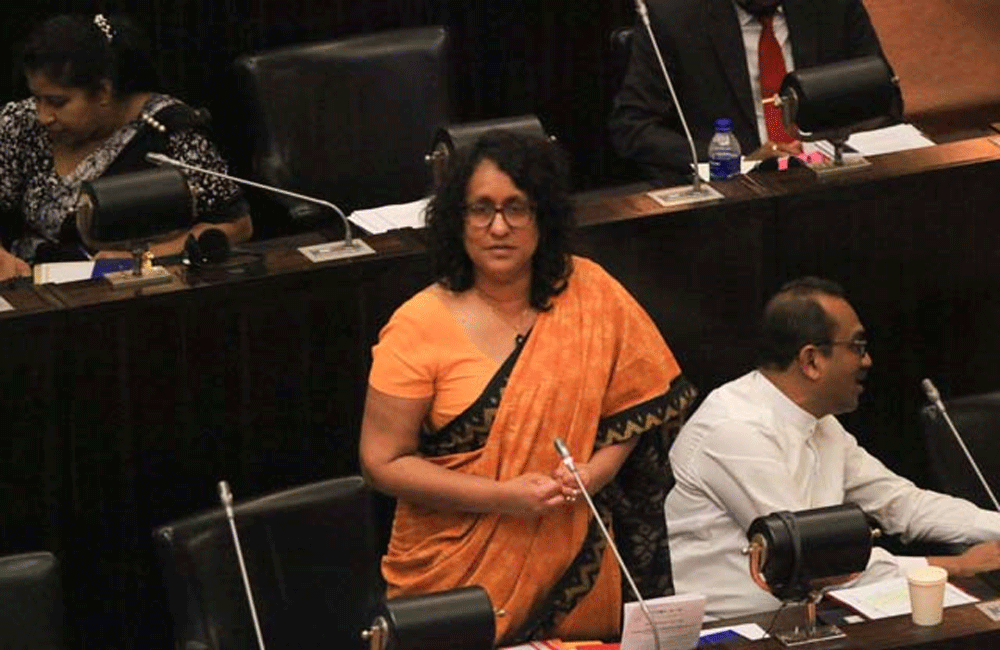
PM assures justice for Lasantha Wickrematunge’s family
Prime Minister Harini Amarasuriya assured Parliament today that the government is committed to securing justice for the family of slain journalist Lasantha Wickrematunga.
Her comments come after a letter from Ahimsa Wickrematunga, daughter of the late editor, urging the Prime Minister to impeach Attorney General Parinda Ranasinghe.
In her letter, Ahimsa accused the Attorney General of abusing power and neglecting duty by recommending the discharge of three suspects in her father’s murder case.
“I plan to respond to the letter personally,” Amarasuriya said. “Our government’s position on this case is very clear. We intend to seek justice for the murder of Lasantha Wickrematunga,” the Premier said noting that it has always been the position of her party.
She acknowledged Ahimsa’s concerns assuring that justice will be delivered. “I well understand Ahimsa’s concerns and the agony she must be feeling right now. But I will assure her that we will do everything in our power to ensure that justice is delivered on this matter.”
Amarasuriya added that while the government respects the independence of the Attorney General’s office, it is also exploring the possibility of filing fresh indictments in the case. She noted that extensive discussions had taken place, including a meeting between the President and those involved, to determine the next steps.
Responding to the Prime Minister’s remarks, MP Rauff Hakeem called for a parliamentary debate on the Attorney General’s Department, criticizing its handling of the case.
“The Attorney General’s response is based on a weak argument regarding an error in the identification parade,” Hakeem said. “Your government pledged in its manifesto to establish an independent prosecutor’s office instead of allowing the Attorney General to directly handle such cases. We believe prosecutorial discretion is being used selectively to free certain individuals.”
Amarasuriya said the government is prepared to allocate a full day for a debate on the issue.
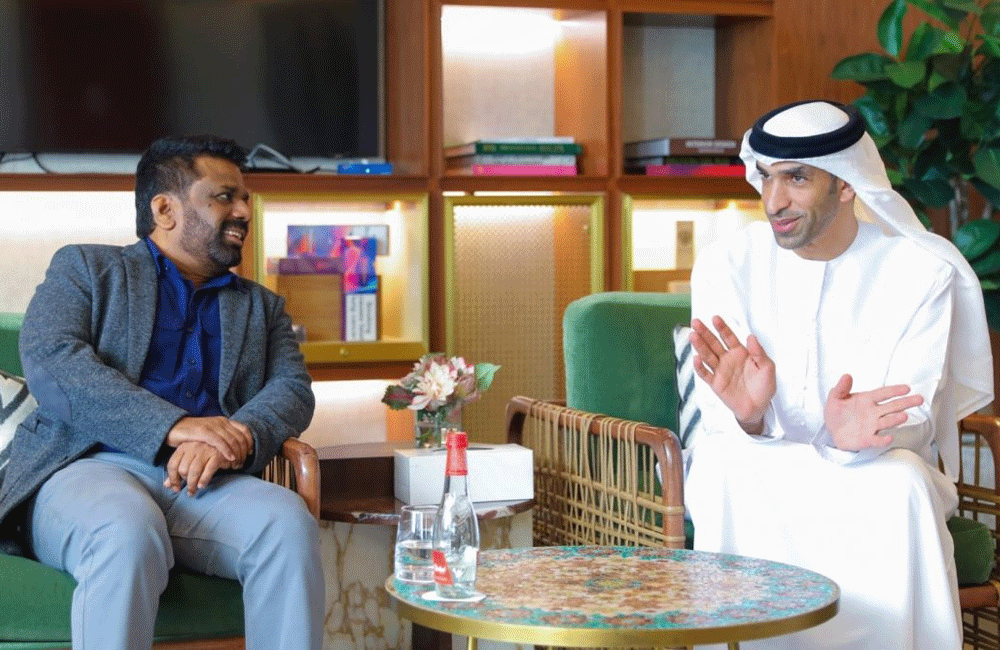
President AKD to attend ‘TIME 100 Gala Dinner’
President Anura Kumara Disanayake, along with his delegation, arrived at Dubai International Airport this afternoon (10) to participate in the World Governments Summit (WGS) 2025, which is scheduled to take place from February 11 to 13 in Dubai, United Arab Emirates. Upon arrival, the delegation, including the President, was warmly welcomed by Dr. Thani bin Ahmed Al Zeyoudi, UAE Minister of State for Foreign Trade, and other state officials.
Also present at the reception were Embassy of Sri Lanka to the United Arab Emirates Chargé d’ affaires Thakshila Arnolda and Consul General of Sri Lanka to Dubai and the Northern Emirates Alexi Gunasekera, along with representatives from the Sri Lanka Embassy in Dubai.
This afternoon, President Disanayake is scheduled to meet with Sheikh Abdullah bin Mohammed Al Qasimi, the Chairman of the Master Investment Group and the ruler’s representative for Ras Al Khaimah. During this meeting, discussions will focus on strengthening economic and investment cooperation between Sri Lanka and the UAE.
Following the said discussion, the President is expected to attend the ‘TIME 100 Gala Dinner’ at the renowned Museum of the Future in Dubai.
The Minister of Foreign Affairs, Foreign Employment, and Tourism Vijitha Herath, is also accompanying the President on this visit
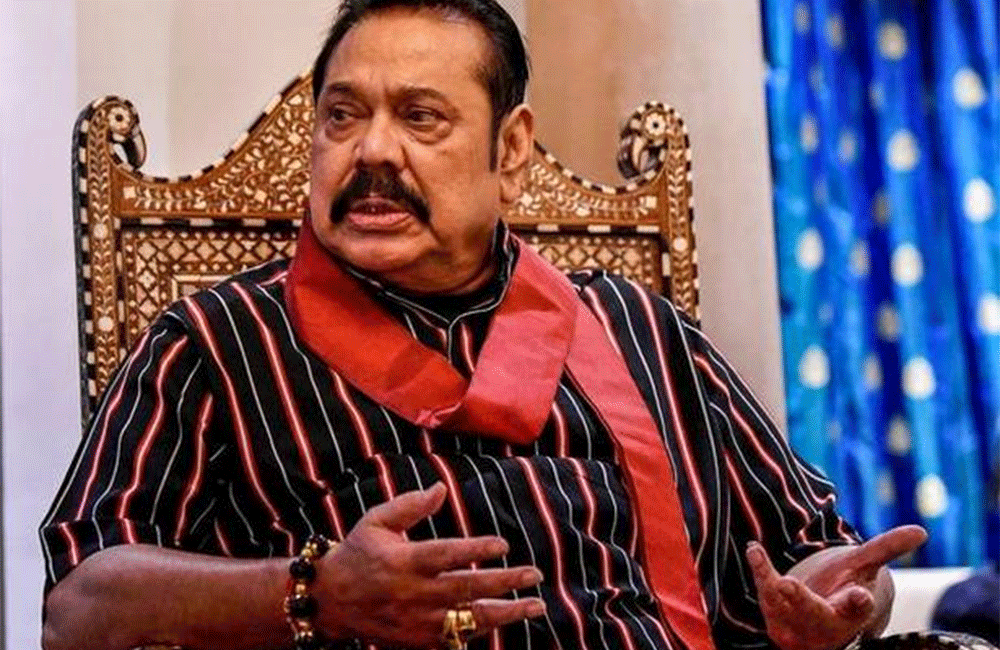
MR's Rights Petition Scheduled for March 19
The Supreme Court has scheduled a hearing for March 19 to consider the fundamental rights petition filed by former President Mahinda Rajapaksa.
This decision was made today by a three-judge bench comprising Justices P. Pathman Surasena, Janak de Silva, and Sampath Abayakoon.
Former President Rajapaksa filed the petition, claiming that his fundamental human rights were violated due to the reduction of his security without proper assessment.
During the hearing, Additional Solicitor General Varunika Hettige, representing the respondents, requested time to obtain instructions and present objections.
The court granted this request, allowing both parties to submit their arguments.
President's Counsel Ali Sabry, representing Mahinda Rajapaksa, argued that the reduction of his client's security was done without any proper security assessment.
He emphasized that any decision regarding security should be based on a thorough evaluation.
The court, after considering the submissions, scheduled the next hearing for March 19 to further examine the petition.
Page 138 of 656